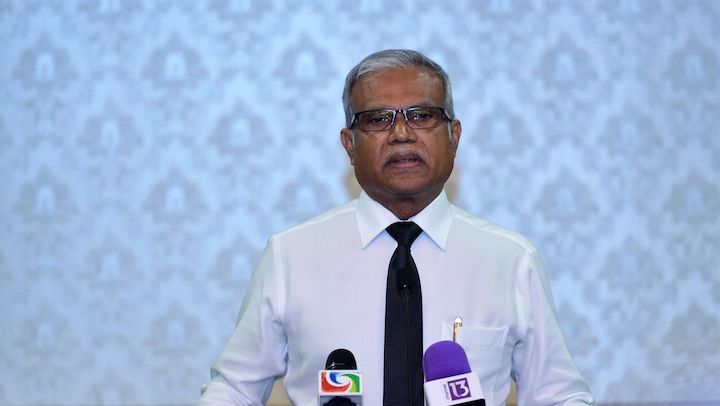Maldives foreign minister accused of sexual harassment
Dr Mohamed Asim was accused by at least four junior female staff.

08 Nov 2018, 09:00
Foreign Minister Dr Mohamed Asim is facing multiple accusations of sexual harassment in the workplace, sources have confirmed to the Maldives Independent.
A highly-placed source from the foreign ministry confirmed that Asim is accused of sexual harassment by at least four women, all of whom are junior staff.
The issues were raised through the ministry’s internal mechanisms and senior officials were aware of the accusations, said the source, who was unaware of details of the incidents.
A second source within the junior political ranks corroborated the information.
Become a member
Get full access to our archive and personalise your experience.
Already a member?
Discussion
No comments yet. Be the first to share your thoughts!
No comments yet. Be the first to join the conversation!
Join the Conversation
Sign in to share your thoughts under an alias and take part in the discussion. Independent journalism thrives on open, respectful debate — your voice matters.




